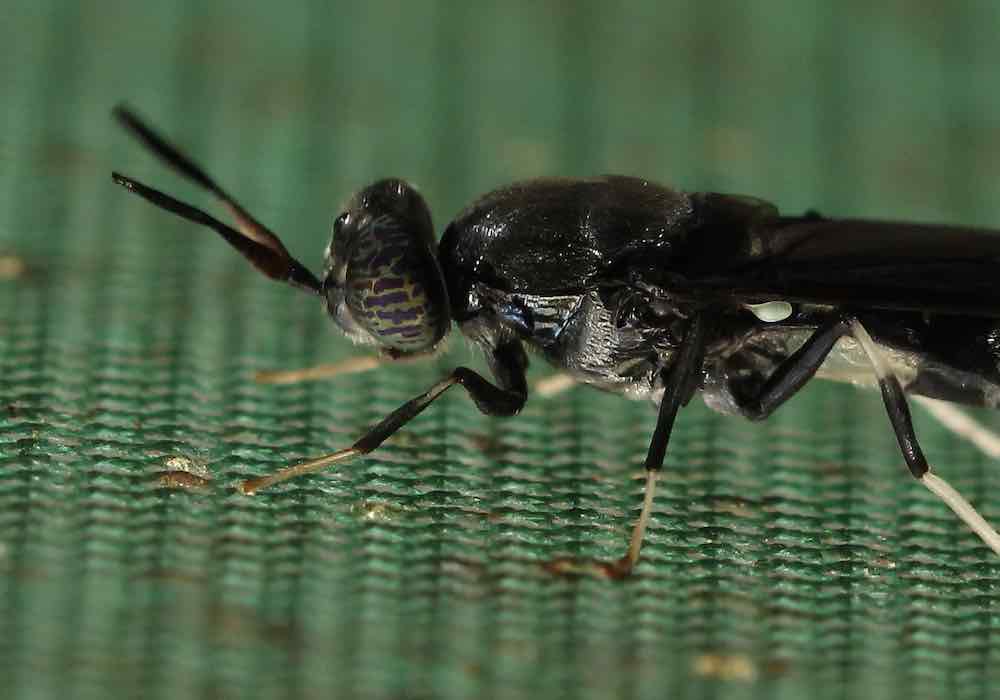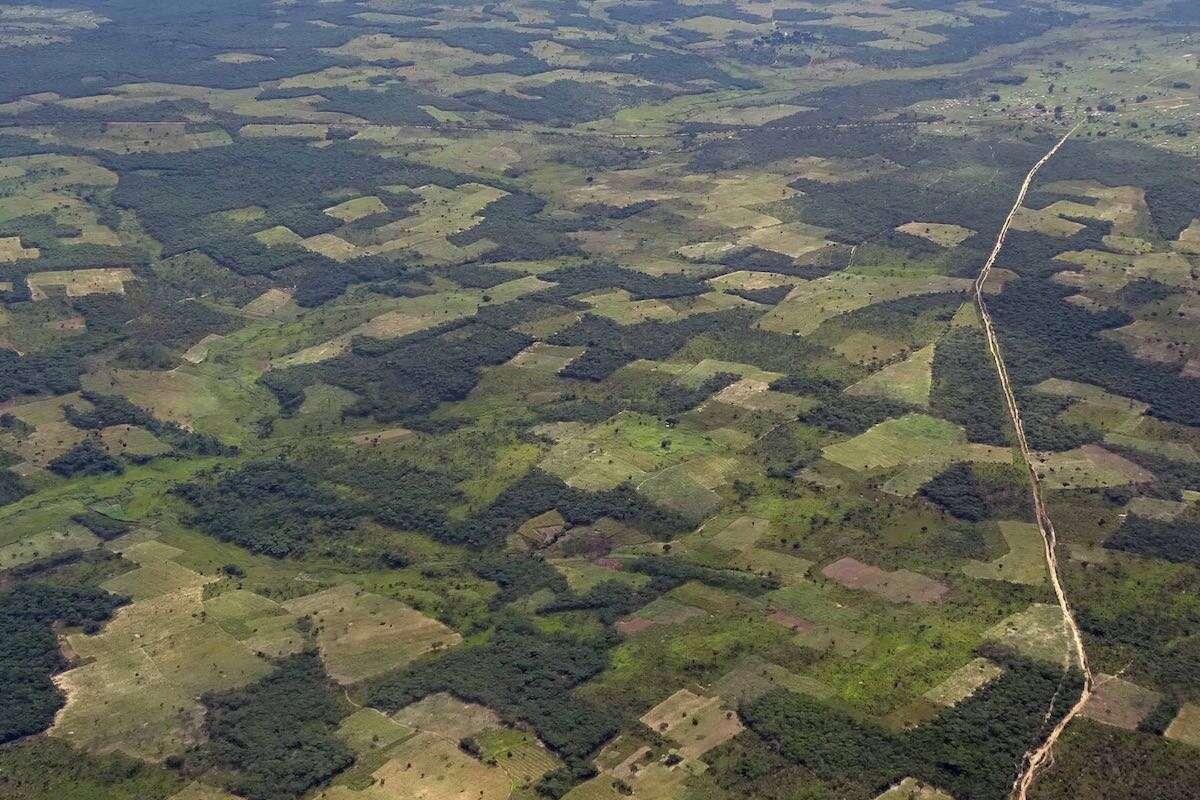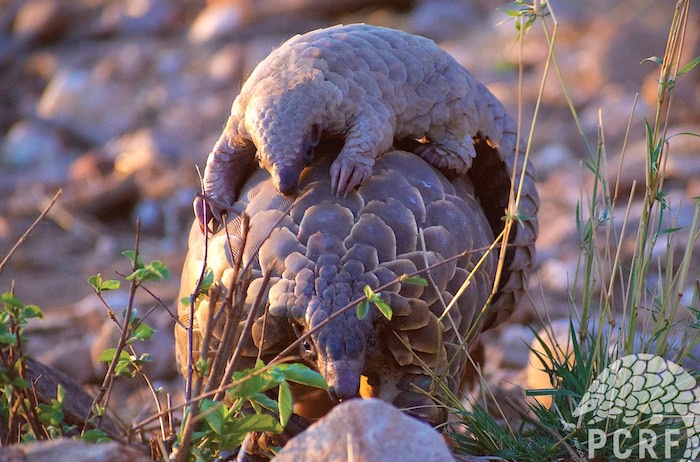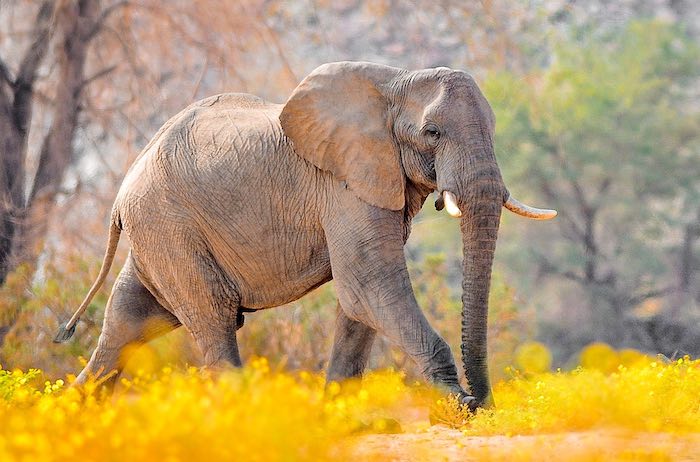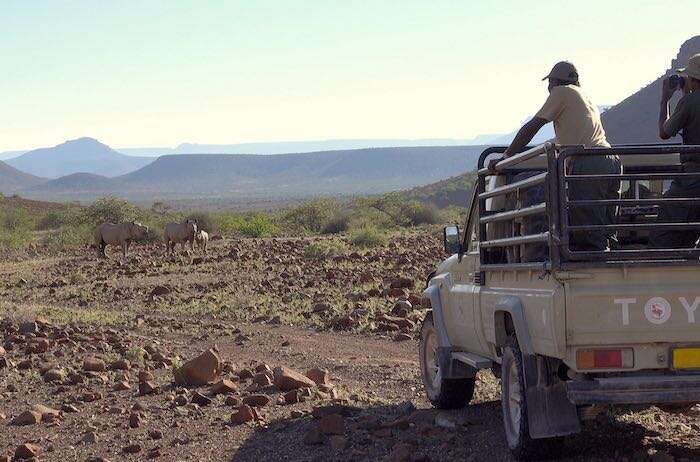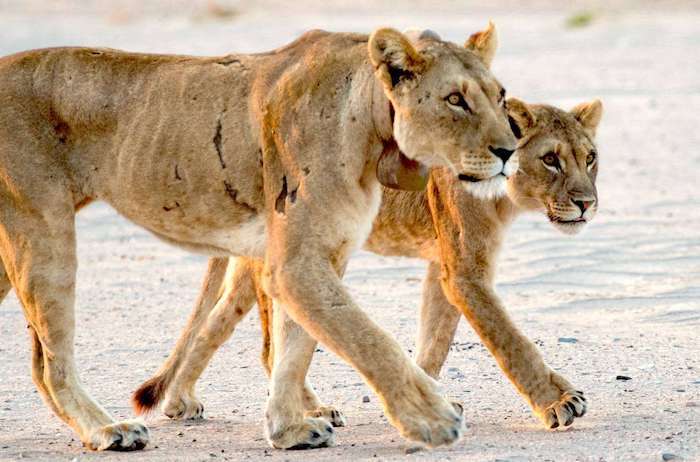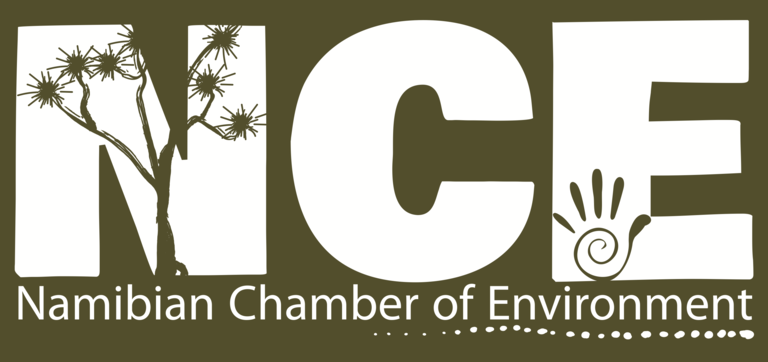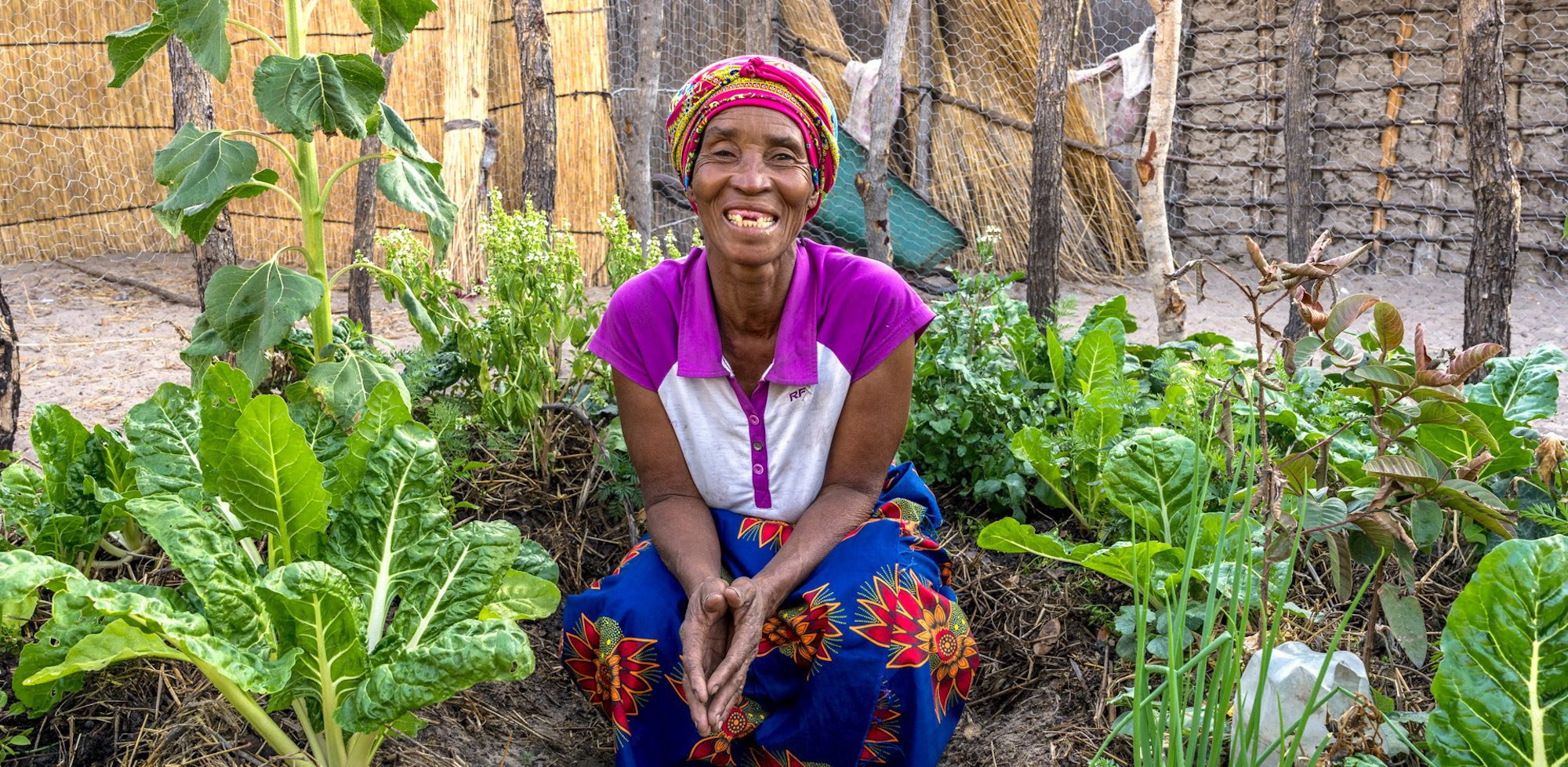
Conservation starts on a full stomach:
Improving agricultural practices in communal conservancies
11th November 2023
11th November 2023
It is early morning in Malengalenga Village in the Zambezi Region. Kazi Kumukwake, a lead farmer in the Dzoti Conservancy, and her older brother are on their way to her two-hectare plot to harvest beans, watermelon and pumpkins. She also grows maize and sorghum, which will be harvested in a few weeks. Despite the erratic rainfall this season, her plot has yielded enough to meet her own household's needs and a surplus that will be sold to others in her community.
Kazi is part of a long-term training programme, the Multiplier Support Programme, where she learnt about organic agricultural practices such as mulching and improving soil quality through compost application. Kazi uses her income from selling fresh produce to support her mother, two brothers and two sons. During the drier winter months, Kazi focuses her efforts on her backyard garden (known as a food circle
) where she grows carrots, beetroot, tomatoes and spinach among fruit trees such as guava, mango and papaya. Kazi also owns six head of cattle, which are integrated into her farming system by supplying manure and transporting reeds, grass and poles.
Farming and conservation in Namibia's communal conservancies
An estimated 9% of Namibians live in communal conservancies. These were established by communities wanting to conserve and use their natural resources sustainably. In conservancies, wildlife-based industries such as tourism and hunting play a vital role for creating jobs and generating income for community benefits and development projects. However, the majority of community members in these areas are also farmers who plant crops and raise livestock for food, to earn extra income from selling surplus produce, and for traditional purposes. Namibia's communal conservancies thus provide an ideal testing ground to show how conservation and agriculture can complement, rather than contradict, each other.
Combining conservation and agriculture is counter-intuitive for some, since the agricultural sector is one of the main drivers of biodiversity loss, land degradation, human-wildlife conflict and climate change worldwide. The combination of practices such as tilling or ploughing, fossil fuel use in agricultural systems, using synthetic fertilisers and pesticides, and the mass production of livestock in feedlots accounted for 18% of the total greenhouse gas emissions in 2020. Few people realise that agriculture could be part of the solution to these challenges, if practices change to working with ecological processes to grow food whilst avoiding land degradation and biodiversity loss.
Sustainable agriculture is an umbrella term for several environmentally friendly agricultural approaches: conservation agriculture, organic agriculture and agroecology. Conservation agriculture focuses on three main principles: minimum tillage to reduce soil disturbance, permanent organic soil cover and diversification of crop species. Organic agriculture aims to enrich the soil using natural forms of fertiliser (e.g. compost, cow manure and urine) and integrated pest control systems rather than ecologically harmful chemical fertilisers and pesticides. Agroecological practices expand on these concepts by capitalising on the unique socio-economic and ecological context where each farm operates to adapt the production system to its environment.
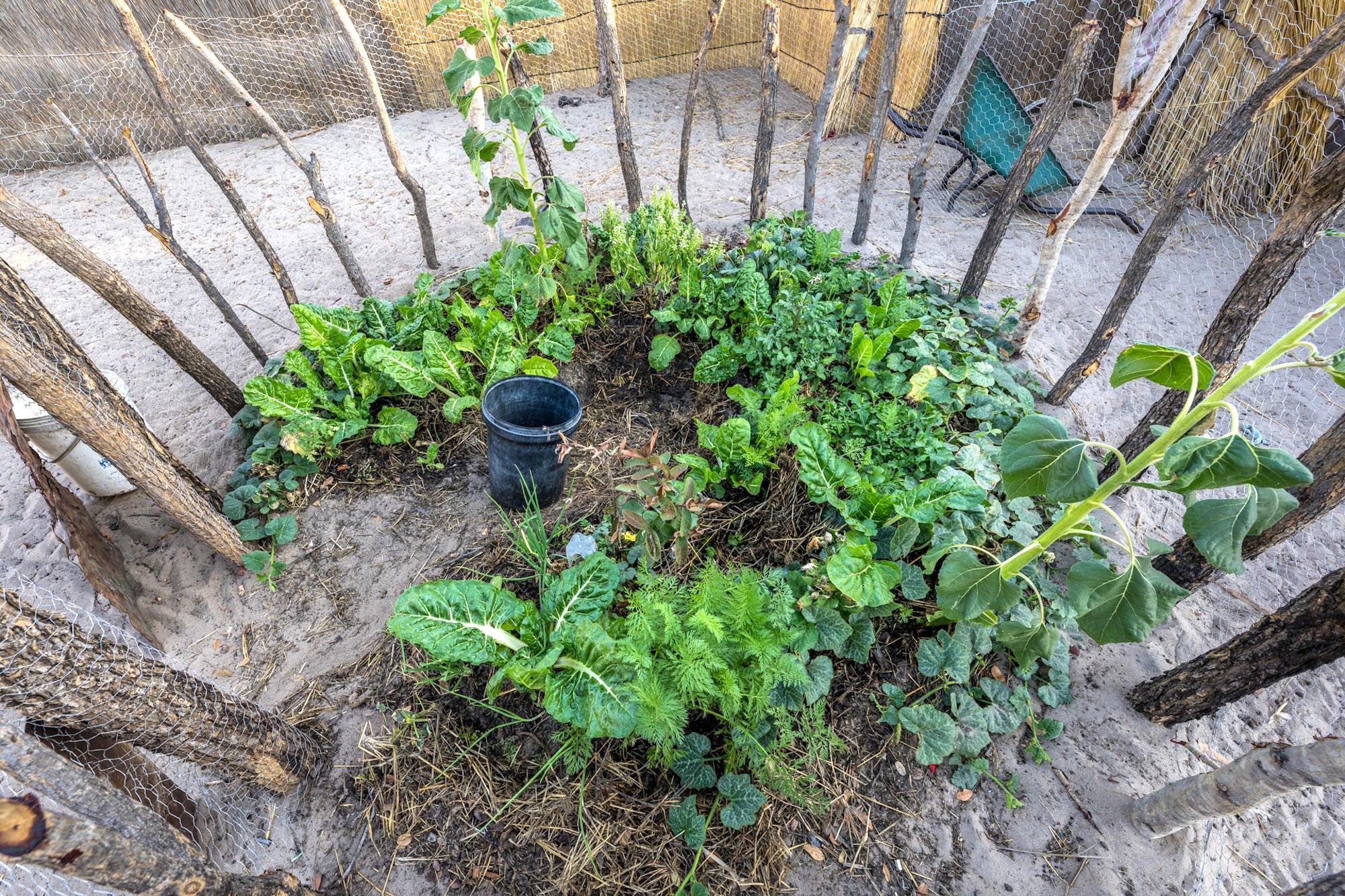
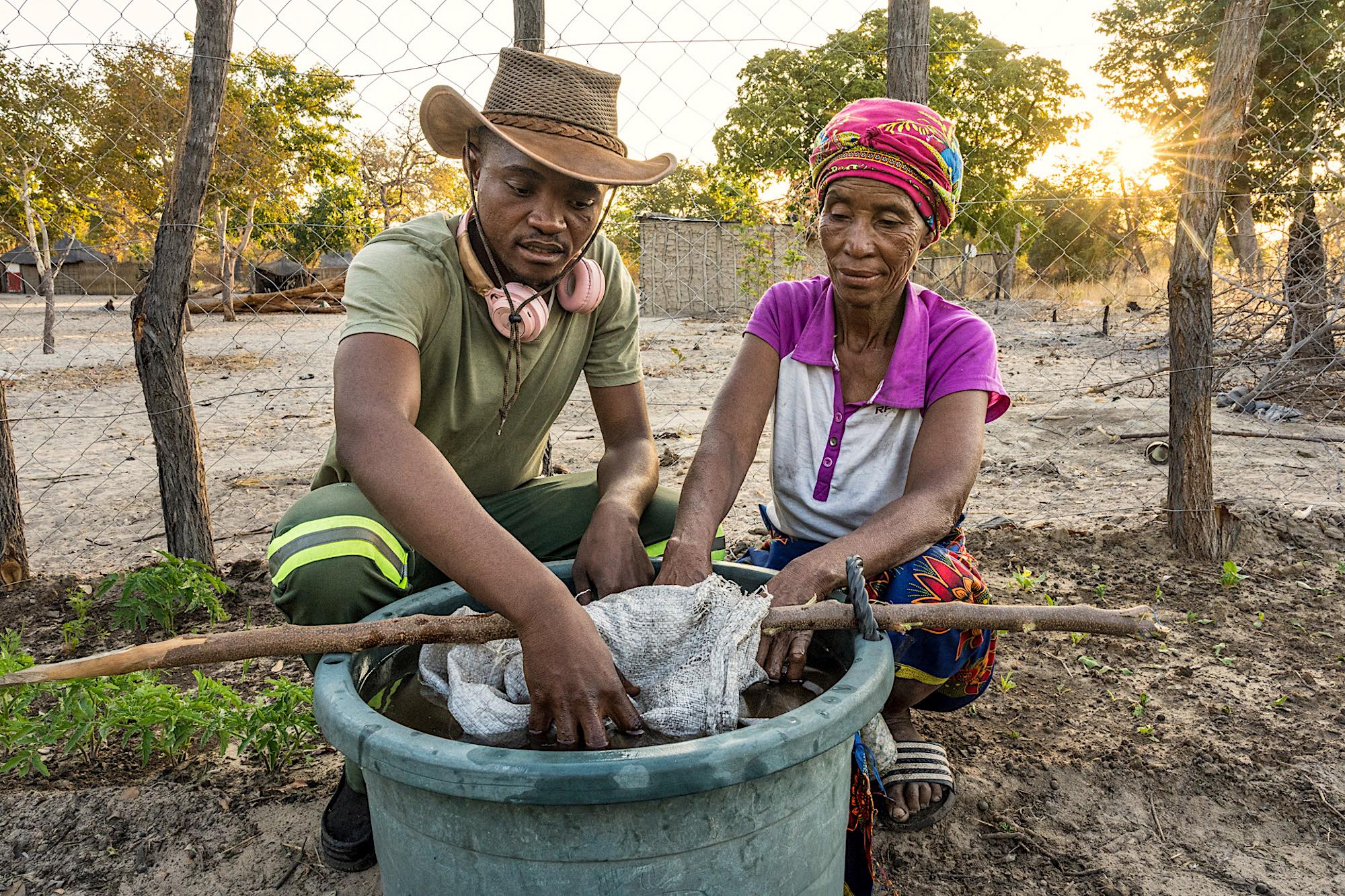
In Namibia's northern regions the sandy soils are inherently deficient in organic matter. That has a direct impact on water holding capacity, nutrient availability and microbial life. This in turn reduces agricultural productivity, leading to lower-than-expected yields that farmers try to compensate for by shifting cultivation every few years and clearing more land. Sustainable agriculture aims to increase soil fertility over time, leading to increased production on the same land. This is especially important in communal conservancies, where communities set aside potential farmland for wildlife to allow tourism to develop and provide alternative livelihoods. Reducing the amount of land needed for agriculture thus reduces competition between these two important sectors.
The Namibia Nature Foundation (NNF), which supports communal conservancies in several parts of the country and has over a decade of experience in agricultural projects, established its Sustainable Agriculture Programme in 2020 to expand its work in this area. This programme focuses on communal conservancies in the Kavango and Zambezi regions, since local communities living there rely heavily on crop and livestock farming for their food security.
Promoting sustainable agriculture through local capacity building
Despite the benefits of sustainable agriculture in terms of improving productivity, decreasing costs of agricultural inputs (e.g. fertiliser) and reducing the need for land, uptake of these practices remains slow. This is likely attributable to the lack of information available to the communities on these practices, which leads to misconceptions and subsequent resistance to change. Overcoming this challenge is central to NNF's work in this region.
One common misperception is that organic agriculture is defined by what it is not: i.e. ‘not using chemical inputs such as fertilisers and pesticides'. Since subsistence or small-scale farmers usually do not use such inputs because they cannot afford them, some believe that they are organic farmers by default. The fact that these farms often produce lower yields than commercial farms that use chemical inputs is seen as ‘evidence' that organic farming leads to reduced yields. Instead, organic farming involves replacing chemical inputs with natural ones that can be just as effective in the short term and even better in the long term.
While conventional agriculture is input-intensive, sustainable agricultural practices are knowledge-intensive. This gap in knowledge can be addressed by bringing in experts or trainers from elsewhere in Namibia, but this is a costly undertaking due to travel distances involved. Training is thus reduced to once-off workshops with limited follow-up training sessions and no long-term mentorship. Furthermore, external trainers cannot always fully relate to local conditions and constraints. Since farming is an on-going learning process that involves unexpected challenges and environmental changes, continued information exchange and mentoring by people who farm in the same area is essential.
To address this issue, NNF has adopted the Multiplier Support Programme, a new model of promoting sustainable agricultural practices. The programme trains active community members with experience and a keen interest in farming who show a willingness and aptitude to share their knowledge with peers.
These local champions are first provided with intensive training on sustainable agriculture to give them an in-depth and holistic understanding of these concepts. Next, they are taught how to design and select relevant training content for farmers in their area, deliver it effectively, and plan logistics and administration for training events. Once trained, they are known as Community Extension Officers (CEOs). CEOs are more than just lead farmers: they are independent consultants who can offer their services to other local farmers and partner organisations.

Using sustainable agriculture to address other conservation challenges
Human-wildlife conflict is rife in the Zambezi and Kavango regions, with crop fields being raided by elephants, buffaloes and other herbivores, while livestock are killed or injured by predators. An agroecological approach to farming reduces conflict with herbivores that cause crop damage by respecting existing wildlife corridors and not farming in those particular areas, thereby promoting coexistence. Conflict with predators can be reduced by keeping livestock overnight in enclosures known as kraals
. The natural fertiliser produced in kraals in the form of animal manure and urine can be used on crop fields and in gardens.
Manure is deposited in any kraal, but the nutrients break down if exposed to sun and rain, which is the norm in open-topped kraals. By putting up a roof over part of the kraal that attracts animals to its shade and protects the manure and urine deposited there, farmers can create a deep litter system
. The shaded area is carpeted with dry organic matter (e.g. grass) or kitchen waste that binds nitrogen and other volatile nutrients, and is ready for collection and composting before being used as natural fertiliser.
The Kwando Carnivore Project has been assisting farmers in this area with erecting mobile kraals using shade net. Not only has it successfully reduced predation on livestock, but by moving these kraals over crop fields (every 10 days to four weeks depending on the size and number of cattle) the manure is also deposited where it is needed. Yields on fields where mobile kraals were used have increased by 100-300% when compared to other fields. This effect can last for up to five years.
Another conservation challenge in this area is deforestation. Agroecological approaches reduce deforestation by incorporating trees into gardens and crop fields and by increasing productivity, thus reducing the need for clearing more land. Another benefit is water conservation, since less water is required on smaller fields where mulch and compost reduces the rate of evaporation. Reliable access to water is a problem for farmers who do not have boreholes and must therefore pay for water piped by Namwater. These farmers often run into debt by not paying water bills.
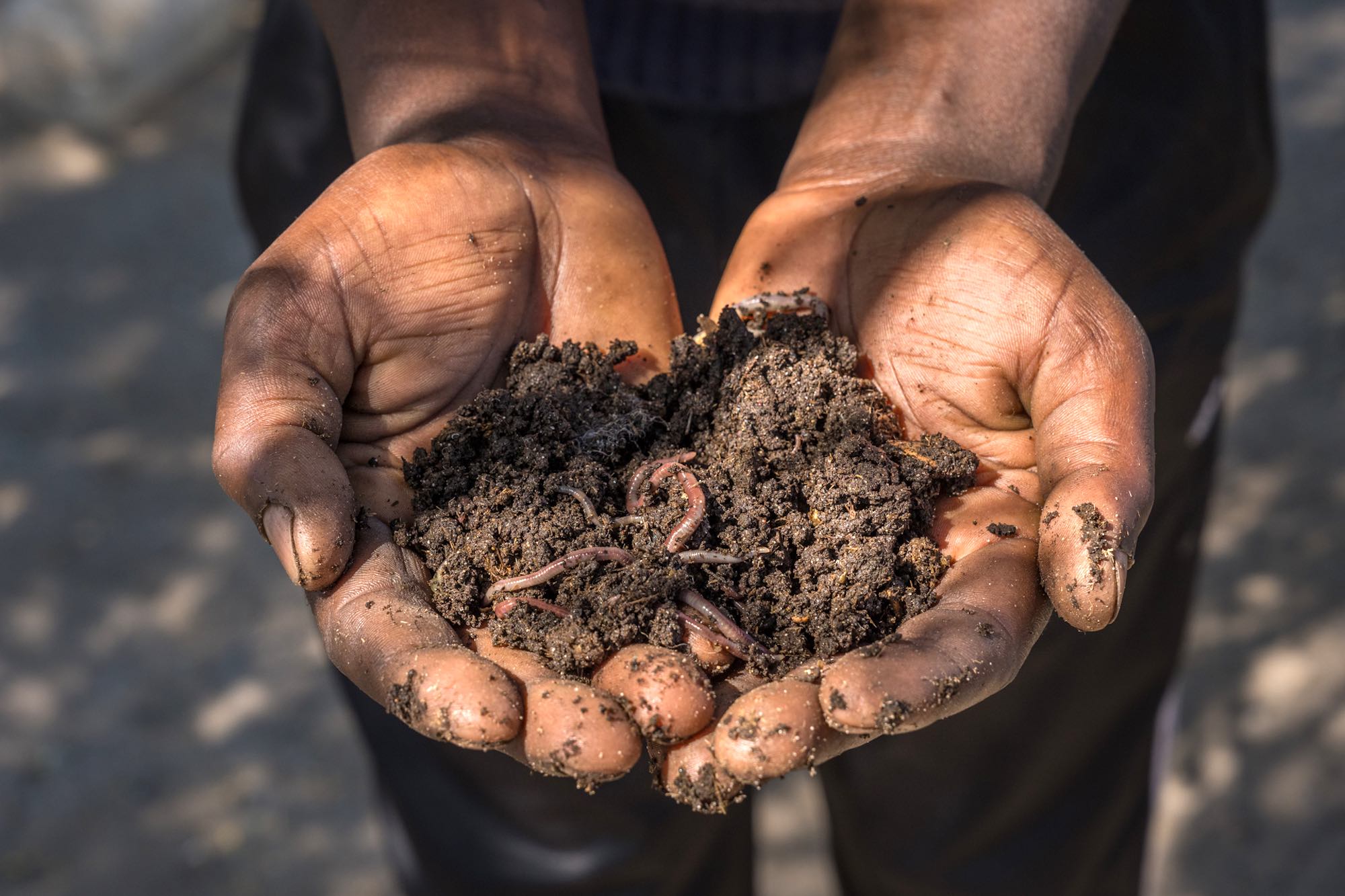
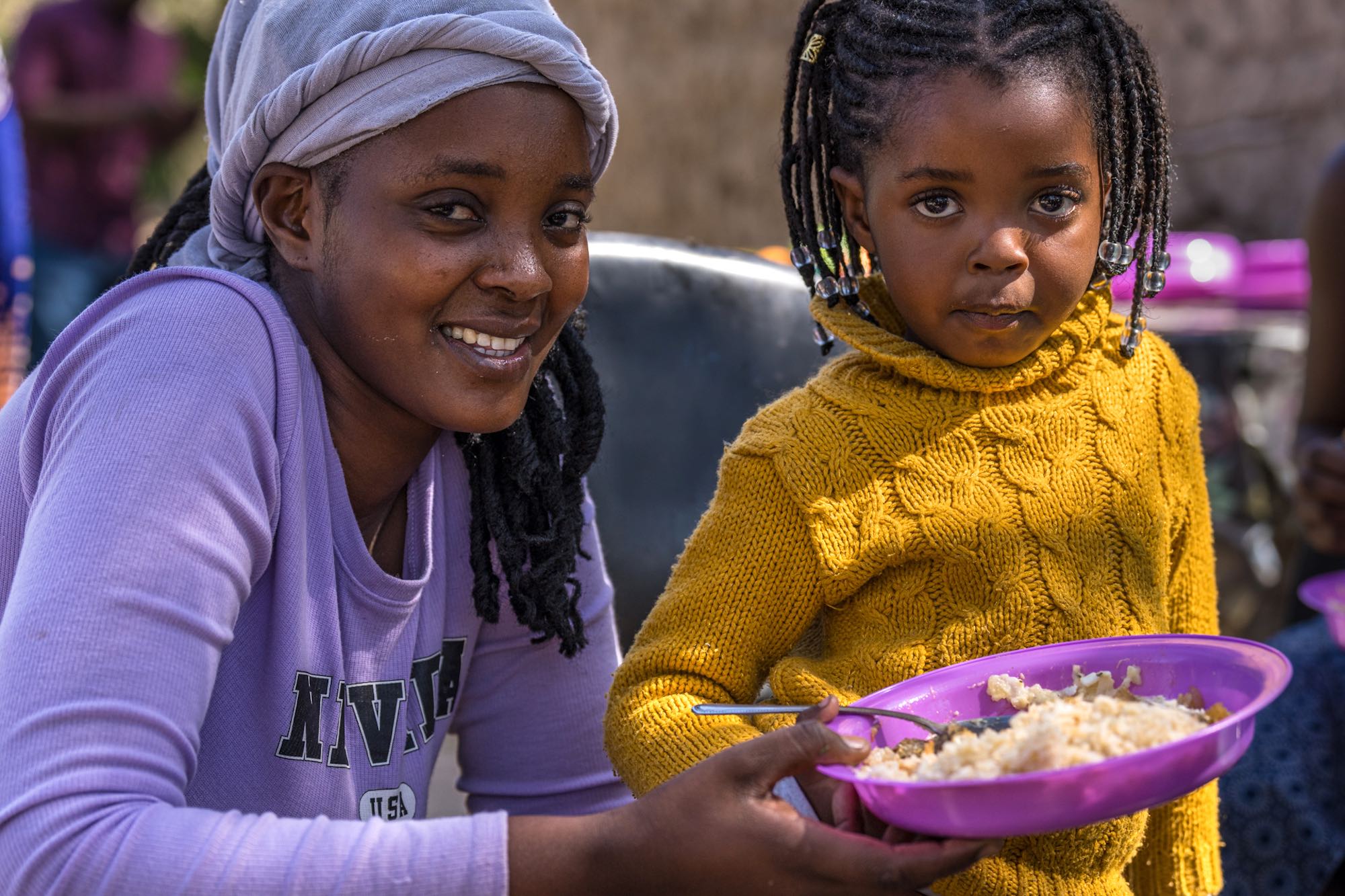
An integrated and collaborative approach
The NNF and Integrated Rural Development and Nature Conservation (IRDNC) are jointly implementing a project together with the Kyaramacan Association that represents communities living in Bwabwata National Park. The project focuses on food security and habitat protection, whereby small-scale and subsistence farmers are introduced to sustainable agriculture approaches and are mentored by local CEOs.
In partnership with the Kambashu Institute, which previously focused on communities in the informal settlements around Windhoek, farmers in Bwabwata have been trained on the concept of food circles
in small backyards. A hole for composting material is dug in the middle of a circle of vegetables such as spinach, peppers, pumpkins, carrots and sweet potatoes, with fruit trees planted in a larger circle around the vegetables. Ideally, this circle is placed close to a house where grey water from the kitchen can be used for watering the compost and plants in a way that prevents contamination of the edible parts of plants. This water-efficient system provides fresh nutritious vegetables at the household level, thus improving food security.
Since agriculture is central to the well-being and food security of any community, collaboration between organisations, individuals and government is key to ensuring that agricultural practices align with the overall needs and values of community members. Organic agriculture and agroecology are not only relevant for communities living within conservancies. Any farmer can adopt this approach, whether operating at large or small scales, thus benefiting future generations by looking after and protecting the land and natural resources that exist today.
A Community Extension Officer's training and experience
Phinny Muyoba lives in Kena village in the Zambezi Region where she has a small plot of land with her husband. Phinny was invited to join the Multiplier Support Programme (MSP) in 2022, a programme implemented by the NNF under the Knowledge Hub on Organic Agriculture in Southern Africa (KHSA). KHSA is part of the continent-wide Knowledge Centre for Organic Agriculture (KCOA), designed to support multipliers through capacity building, creating networks and disseminating knowledge and information on organic agriculture and agroecology.
In Namibia the MSP focuses specifically on personal growth and farming with nature
. By the end of August 2023, Phinny and her fellow multipliers had undergone six three-day training sessions. During this time, Phinny was mentored to improve her own farming practices and thus grow her capacity to share information and become a mentor in her community.
Phinny has also participated in nutrition training offered by the Nutrition and Food Security Alliance of Namibia (NAFSAN) and GIZ-Farming for Resilience (F4R). Nutrition plays a key role in ensuring food security and health by promoting a diverse diet, often presented as ‘rainbow' plates: meals that consist of an array of colours from types of food that farmers can grow themselves. This training allows CEOs and other NNF field staff to include information on nutrition in their day-to-day training, outreach and mentoring work that covers organic agricultural practices.
For articles on similar topics, please click one of the following options:
For more great articles from Conservation Namibia see below...
Conservation Namibia brought to you by:
We use cookies to monitor site usage and to help improve it. See our Privacy Policy for details. By continuing to use the site, you acknowledge acceptance of our policy.
